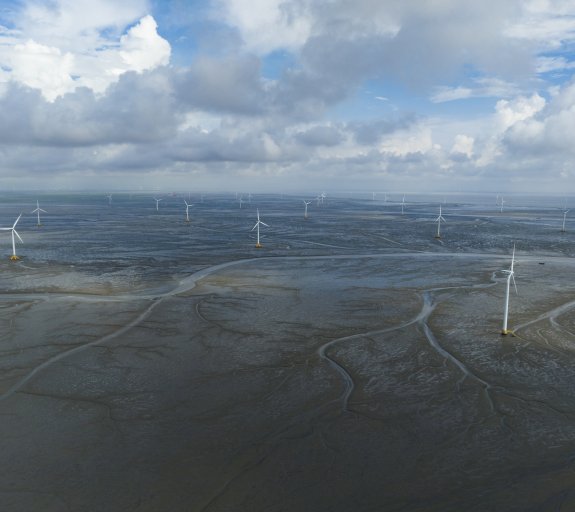
UK Sustainable Equity strategy - June 2023
- 15 June 2023 (5 min read)
Contrary to many market economists, the UK economy keeps beating the rather gloomy predicted expectations for it
- SSE announced that it will invest £40bn in clean energy projects over the next decade
- Positive company updates including Hill & Smith, Bytes and Hollywood Bowl
- RS Group (Progress) was sold
What’s happening?
May was a weak month of stock market returns on concerns about a global slowdown following China’s continued weak economic data and uncertainty around the US debt ceiling, which outpaced optimism around slowing inflation in many developed market economies. The FTSE 100 hit a two-month low at the end of the month on these combined headwinds as the Oil & Gas and Metals & Mining sectors came under pressure.
Contrary to many market economists and indeed the Bank of England (BOE) and the International Monetary Fund (IMF) the UK economy keeps beating the rather gloomy predicted expectations for it. Indeed, the IMF no longer expects a recession in Britain this year. It said the steps taken by the government to stabilise the economy and fight inflation would help GDP grow by 0.4% in 2023 rather than contracting 0.3% as it had predicted in April. The Bank of England upgraded their 2023 forecasts in May by its ‘biggest upgrade’ showing that it too had become overly pessimistic.
While the Consumer Price Index (CPI) rate of inflation fell to 8.7% year-on-year in April 2023, the lowest since March 2022, the rate still exceeded market expectations of 8.2% and remains well above the Bank of England’s (BoE) 2% target. Inflation is currently being driven by shop inflation which reached its highest rate since industry records began in 2005. The British Retail Consortium said prices in supermarkets and retail chains rose 9.0% in the year to May, after an 8.8% increase in April, although food prices cooled slightly. In response the BOE increased the cost of borrowing by another 25 basis points (bps), in line with its central bank peers in the US and Europe, to reach 4.5%.
The FTSE All Share (-4.72%1 ) and its constituent parts (the FTSE 100 -5.04%1, FTSE 250 ex-Investment Companies -4.11%1 and FTSE Small Cap ex-Investment companies -1.71%1) all posted sizable declines.
Portfolio positioning and performance
The strategy outperformed the FTSE All Share, in May. In corporate news, May is a busy month of result updates and management meetings. Pleasingly, there was plenty of positive news. Hill & Smith again produced good results driven by their exposure to US infrastructure spend. Bytes also produced excellent organic growth helped by the demand for Microsoft and cyber security products. SSE upgraded their renewable energy capex plan by over 40% to £18bn and Hollywood Bowl indicated that demand for their tenpin bowling experience remains robust.
Other companies to report solid results during the period were Convatec, Intermediate Capital, Kainos, Treatt, Grainger & Genuit. However, Genus indicated that the hoped for recovery in the Chinese porcine market has yet to take place. Marshalls and Kin + Carta also reported tough market conditions.
From an Environmental, Social & Governance (ESG) point of view it is pleasing to note that Nationwide has reduced the interest rate it charges on its green additional borrowing products to 0% for 5,000 households. All of the loan must be used to fund non-structural, energy efficient home improvements such as solar, air source heat pumps or boiler upgrades. Although only small it is these sorts of initiatives that could help demand for our sustainable building material investments in Genuit and Marshalls.
In addition during May, SSE announced that it will invest £40bn in clean energy projects over the next decade. This comes off the back of strong profits due to high energy prices. This is a major ramp up from its normal capex spending, which was £2.07bn in FY2022. The investment will support renewable energy and low carbon grid infrastructure projects in the UK. SSE believes that this will help create more than 1,000 green jobs every year, supporting the sustainable transition.
ESG analysis was conducted on Bytes and XPP during the month with both companies impressing on both ‘what they do’ and ‘how they do it’. An engagement meeting also took place with Blancco Group PLC. Their Board transition requirements are now better understood, as well as their opportunity in the circular economy for E waste.
The portfolio consists of 79% in companies that are deemed as ESG leaders and 21% that are ‘in transition’ and cash.
Selectively added to the existing position in Lloyds (People) following its share price weakness. Higher for longer interest rates and a stronger than expected economy should enable the bank to provide an attractive level of capital return in the form of dividends and share buybacks.
The position in RS Group (Progress) was sold following a change of management team and cyclical concerns over its growth potential.
Outlook
The main driver of equity markets is still the action in the world’s bond markets. After the initial strong start to 2023 markets have reversed expectations that Central Banks would quickly pivot and have now realigned closer to the guidance of rates being at least on hold as they approach the end of their tightening cycle. Market volatility will remain in the near-term as c risk and uncertainty, it is easy to focus exclusively on the macro and geopolitical news flow and lose focus on the fundamental drivers of profitability and cashflow at the corporate level. Our approach remains centred on owning good quality businesses that can reinvest and compound their returns over time. We continue to believe that understanding longer term structural trends and identifying responsible, reliable and ultimately sustainable companies, in a targeted, focused and active approach, remains the key to longer-term success.
Examples are provided for informational purposes only and should not be considered as solicitation or investment, legal or tax advice, a recommendation for an investment strategy or a personalised recommendation to buy or sell securities.
No assurance can be given that the UK Sustainable Strategy will be successful. Investors can lose some or all of their capital invested. The UK Sustainable Strategy is subject to risks including: Emerging markets; ESG; Global Investments; Impact; Investments in small capitalisation and/or micro capitalisation universe and Investment in specific sectors or asset classes.
- U291cmNlOiBCbG9vbWJlcmcgYXMgYXQgMzFzdCBNYXkgMjAyMw==

Sustainable Equity QI
Smart equity solutions investing in low volatility and quality factors can offer diversified, cost-effective and defensive exposure to global equity markets
Find out moreVisit the fund centre
The aim of this strategy is to provide long-term capital growth over a period of 5 years or more.
View fundsDisclaimer
Not for Retail distribution: This marketing communication is intended exclusively for Professional, Institutional, Qualified or Wholesale Clients / Investors only, as defined by applicable local laws and regulation. Circulation must be restricted accordingly.
This marketing communication does not constitute on the part of AXA Investment Managers a solicitation or investment, legal or tax advice. This material does not contain sufficient information to support an investment decision.
Past performance is not a guide to current or future performance, and any performance or return data displayed does not take into account commissions and costs incurred when issuing or redeeming units. The value of investments, and the income from them, can fall as well as rise and investors may not get back the amount originally invested. Exchange-rate fluctuations may also affect the value of their investment. Due to this and the initial charge that is usually made, an investment is not usually suitable as a short term holding.
This marketing communication is for informational purposes only and does not constitute investment research or financial analysis relating to transactions in financial instruments as per MIF Directive (2014/65/EU), nor does it constitute on the part of AXA Investment Managers or its affiliated companies an offer to buy or sell any investments, products or services, and should not be considered as solicitation or investment, legal or tax advice, a recommendation for an investment strategy or a personalized recommendation to buy or sell securities. The strategies discussed in this document may not be available in your jurisdiction.
Due to its simplification, this marketing communication is partial and opinions, estimates and forecasts herein are subjective and subject to change without notice. There is no guarantee forecasts made will come to pass. Data, figures, declarations, analysis, predictions and other information in this document is provided based on our state of knowledge at the time of creation of this document. Whilst every care is taken, no representation or warranty (including liability towards third parties), express or implied, is made as to the accuracy, reliability or completeness of the information contained herein. Reliance upon information in this material is at the sole discretion of the recipient. This material does not contain sufficient information to support an investment decision.
Please note that the management company reserves the right, at any time, to no longer market the product(s) mentioned in this communication in an European Union country by notification to its authority of supervision in accordance with European passport rules. In the event of dissatisfaction with the products or services, you have the right to make a complaint either with the marketer or directly with the management company (more information on our complaints policy available in English here). You also have the right to take legal or extra-judicial action at any time if you reside in one of the countries of the European Union. The European online dispute resolution platform allows you to enter a complaint form (by clicking here) and informs you, depending on your jurisdiction, about your means of redress (by clicking here).
Issued in the U.K. by AXA Investment Managers UK Limited, which is authorised and regulated by the Financial Conduct Authority in the UK. Registered in England and Wales, No: 01431068. Registered Office: 22 Bishopsgate, London, EC2N 4BQ. In other jurisdictions, this document is issued by AXA Investment Managers SA’s affiliates in those countries.
Risk Warning
The value of investments, and the income from them, can fall as well as rise and investors may not get back the amount originally invested.